Duration the IRS Has to Assess Federal Income Tax?
 The statute of limitation for assessment purposes represents the last day in which the Internal Revenue Service may assess federal income tax. The statute of limitations for assessment should not be confused with the statute of limitations for collections. In many instances, taxpayers and their advisors rely on the general three year rule as a defense to the assessment of additional income tax without fully understanding the assessment rules. The discussion that follows will examine the general rules, the various exceptions and instances where the statute of limitations is suspended. The discussion is limited to income taxes.
The statute of limitation for assessment purposes represents the last day in which the Internal Revenue Service may assess federal income tax. The statute of limitations for assessment should not be confused with the statute of limitations for collections. In many instances, taxpayers and their advisors rely on the general three year rule as a defense to the assessment of additional income tax without fully understanding the assessment rules. The discussion that follows will examine the general rules, the various exceptions and instances where the statute of limitations is suspended. The discussion is limited to income taxes.
Three Year Statute of Limitations
In general, the IRS has three years from the date a tax return is filed or deemed filed in which to assess additional income tax. A tax return that is received by the IRS on or prior to the due date is deemed to be filed on the normal due date. In contrast, a return received by the IRS after the normal due date is considered filed on the date the IRS receives the return. An exception exists where a timely filed return is mailed. In such an instance, the postmark date will be considered the date of filing. In the case of a qualified private delivery service, the date the taxpayer delivers the return to a qualified delivery service will be considered the filing date.
Exceptions to the Three Year Statute of Limitations
There are a number of exceptions to the general three year statute of limitation that include filing a false return, failing to file a return and instances where the three year statute is extended by agreement.
- Filing a False Return: There is no statute of limitations in cases where an individual files a false tax return with the intent to evade income tax (26 U.S.C.6501(c) (1)). Similarly, where a taxpayer files a non-fraudulent amended tax return in attempt to cure a fraudulent original return, the non-fraudulent amended return does not void the unlimited statute of limitations (Badaracco v. Commissioner). Likewise, the statute of limitations will remain open where a joint return is filed, but only one of the taxpayers had fraudulent intent when signing the return.
In the case where the fraud is attributable to the return preparer rather than the taxpayer, the question remains in flux. In Allen v. Commissioner the Tax Court held that, for purposes of Section 6501(c)(1), the limitations period remains open indefinitely regardless of whether it was the taxpayer or the taxpayer’s tax return preparer who had the intent to evade tax. Subsequently, the U.S. Court of Appeals for the Second Circuit in City Wide Transit, Inc. V. Commissioner agreed with the U.S. Tax Court. In contrast, the Court of Appeals for the Federal Circuit, in BASR Partnership et al. v. United States held that a showing of taxpayer’s fraud is required in order for the unlimited statute of limitations to apply.Where a taxpayer is convicted of criminal tax evasion under 26 U.S.C. §7201, the question of fraud is established for purposes of Section 6501(c) (1).
- No Return Filed: There is no statute of limitations where no return is filed (26 U.S.C. 6501(c) (3)).
- Extension by Agreement: The statute of limitations may also be extended by written agreement between the taxpayer and the IRS under Section 6501(c) (4) (A).The most commonly used form for extending the statute of limitation is Form 872 (Consent to Extend the Time to Assess Tax).
- Significant Omissions of Income: The three year statute of limitations is extended to six years, in cases where a taxpayer omits from gross income more than 25% of the gross income stated in the filed return (26 U.S.C. 6501(e) (1) (A) (i)). An exception to the application of the six year statute of limitations is where the taxpayer makes an adequate disclosure of the omitted income on the return or in a statement attached to the return. However, where the original return contains a substantial omission, the filing of an amended return will not cure the substantial omission and the six year statute of limitations will apply.
- Omission of Greater than $5,000 of Income Generated from Foreign Financial Assets: If a taxpayer omits gross income from foreign financial assets in an amount that exceeds $5,000, the statute of limitations is six years rather than three years. Disclosure of foreign financial assets as well as the income derived therefrom is required to be reported on Form 8938. Furthermore, if the taxpayer fails to provide the disclosures required on Form 8938, the statute of limitations will not begin to run until the required information is provided to IRS, even if the income is reported on the tax return.
Suspension of the Three Year Statute of Limitations
There are a number of instances where the statute of limitations is suspended. Where the IRS issues a notice of deficiency, the three year statute is initially suspended for 90 days. During this period, the IRS is prohibited from making any further assessment. If a taxpayer elects not to file a Tax Court petition, the statute is suspended for an additional 60 days. Where a Tax Court Petition is filed, the statute is suspended for an additional 60 days from the date the Tax Court decision becomes final. In addition, where a taxpayer files a bankruptcy petition, the statute is suspended while the bankruptcy is pending and continues for an additional 60 days following the final disposition of the bankruptcy.
Taxpayers should always consult with an experienced and knowledgeable tax attorney when faced with issues related to the statute of limitations.

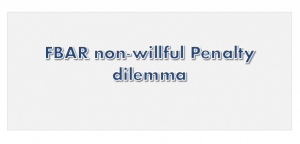 The Courts have recently addressed the issue of whether the FBAR Non-Willful penalty should be assessed per form rather than per account with conflicting results. In
The Courts have recently addressed the issue of whether the FBAR Non-Willful penalty should be assessed per form rather than per account with conflicting results. In Operating a cash intensive business is often accompanied by poor record keeping as well as the lack of any meaningful internal controls. These two factors make it difficult, if not impossible, to determine the taxpayer’s operations, financial condition, and most important, whether the taxpayer’s tax returns are true and accurate. Where tangible evidence concerning the taxpayer’s business is absent, an IRS agent will have to rely on the oral testimony of the taxpayer as it relates the financial information contained in the taxpayers returns in order to determining whether the taxpayer’s testimony is credible.
Operating a cash intensive business is often accompanied by poor record keeping as well as the lack of any meaningful internal controls. These two factors make it difficult, if not impossible, to determine the taxpayer’s operations, financial condition, and most important, whether the taxpayer’s tax returns are true and accurate. Where tangible evidence concerning the taxpayer’s business is absent, an IRS agent will have to rely on the oral testimony of the taxpayer as it relates the financial information contained in the taxpayers returns in order to determining whether the taxpayer’s testimony is credible. In April 2020, a Florida man pleaded guilty to tax evasion and the willful failure to file FBAR’s. What makes this case particularly interesting is that the taxpayer made use of a “quiet disclosure” rather than entering into the Offshore Voluntary Disclosure Program (OVDP). This is a classic case of greed on steroids.
In April 2020, a Florida man pleaded guilty to tax evasion and the willful failure to file FBAR’s. What makes this case particularly interesting is that the taxpayer made use of a “quiet disclosure” rather than entering into the Offshore Voluntary Disclosure Program (OVDP). This is a classic case of greed on steroids.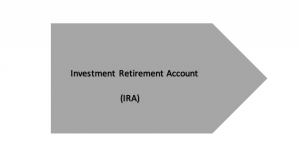 Real estate ownership in a Self-Directed Investment Retirement Account (IRA) can provide certain tax benefits to taxpayers who are considering an investment in real estate. However, a retirement account considering such a strategy should be familiar with IRS rules and potential tax consequences associated with violating those rules.
Real estate ownership in a Self-Directed Investment Retirement Account (IRA) can provide certain tax benefits to taxpayers who are considering an investment in real estate. However, a retirement account considering such a strategy should be familiar with IRS rules and potential tax consequences associated with violating those rules.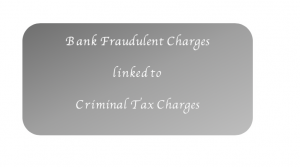 The temptation to use unfilled or altered tax returns as well as doctored financial statements for purposes of securing a bank loan, while not common, does occur. This practice typically occurs where an individual is faced with financial difficulties and sees no other way out. The consequences of submitting false documents including unfiled and false returns are strong evidence of the willful failure to file income tax returns as well as income tax evasion.
The temptation to use unfilled or altered tax returns as well as doctored financial statements for purposes of securing a bank loan, while not common, does occur. This practice typically occurs where an individual is faced with financial difficulties and sees no other way out. The consequences of submitting false documents including unfiled and false returns are strong evidence of the willful failure to file income tax returns as well as income tax evasion.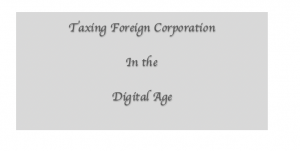 Foreign entities that deliver digital goods and services using the internet as a point of distribution may be subject to U.S. income tax. The nature and character of the goods and services will dictate how the income is taxed. In the interest of clarity, the following discussion is limited to effectively connected income.
Foreign entities that deliver digital goods and services using the internet as a point of distribution may be subject to U.S. income tax. The nature and character of the goods and services will dictate how the income is taxed. In the interest of clarity, the following discussion is limited to effectively connected income.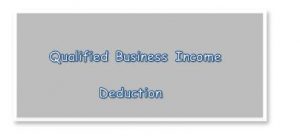 On September 24, 2019, the IRS issued
On September 24, 2019, the IRS issued 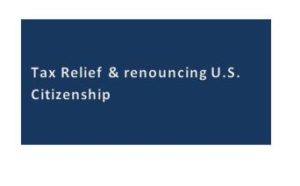 The new procedures attempt to address problems faced by some U.S. citizens, whose only connection with the United States is that they were born in America. Many of these individuals have been living overseas since an early age, and in some cases, are also citizens of the foreign country in which they reside.
The new procedures attempt to address problems faced by some U.S. citizens, whose only connection with the United States is that they were born in America. Many of these individuals have been living overseas since an early age, and in some cases, are also citizens of the foreign country in which they reside.
